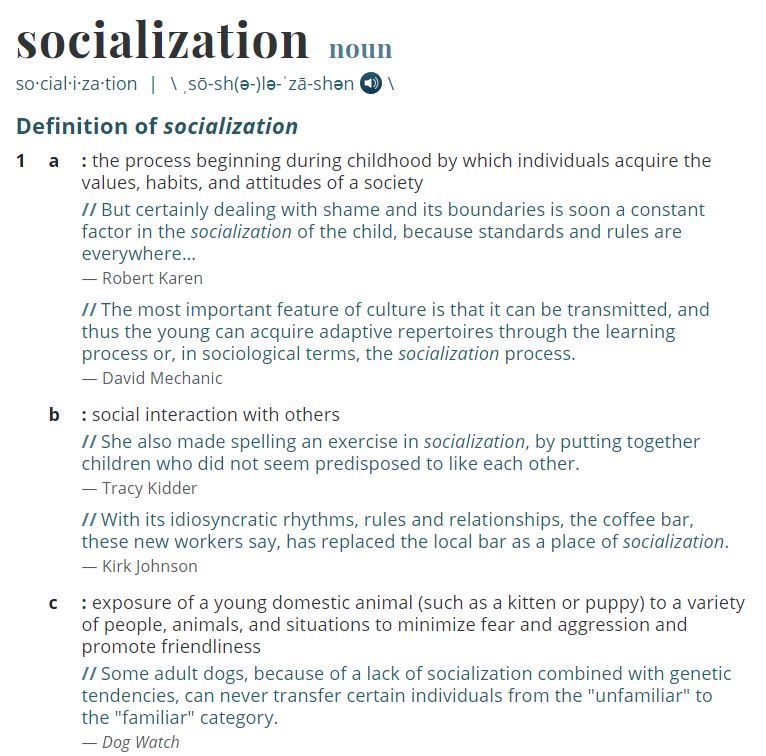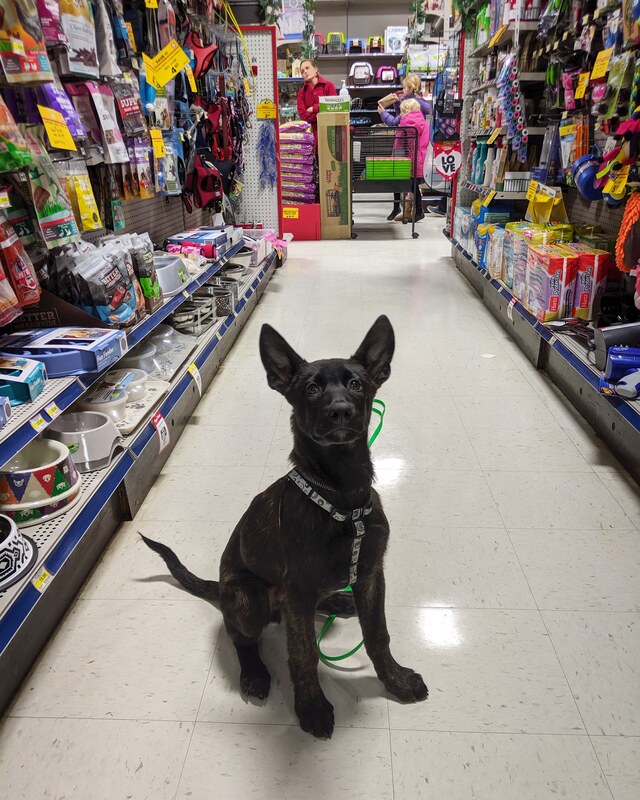Exposure in young dogs is critical, especially during “fear” stages such as the time frame between 8-12 weeks old and then a second one later on in adolescents. It is all about teaching your puppy that the world isn’t a scary place. Proper exposure to a variety of things can help build confidence and teach a dog how to appropriately navigate the world. We want to introduce new things in positive ways so that our puppies go “oh yes, last time I was in a store/saw a new person or dog/heard a loud noise/walked on a new surface, it wasn’t scary and I got a couple treats or to play with my ball”. Exposure is done by introducing something new in a calm manner in hopefully a controlled state. We do not want to take our puppy to a store or dog park and have them rushed by a strange person or dog as this can be very scary for them. It is our job to ensure the situation goes well. It is also important to teach them to focus on us in new situations - your dog will not always be allowed to just do whatever it wants to do not allow this when introducing new things.
A key aspect for us to remember is that not all dogs want to greet new people and being pet by strangers can be very scary. If everytime you go out with your new puppy you think oh I need to have as many people pet it as I can so it isn’t scared of people when it grows up you might be, accidently, doing more harm than good. You are teaching your puppy that scary people will always be coming up to it and touching it. Sometimes this can result in reactive dogs as they will start to behave in ways to make the people go away because they are scared, and it often works as people back away from barking dogs. Instead, create a positive encounter for you puppy - let it see new people at a distance and learn that they aren’t scary.
On the flip side of this, some dogs LOVE meeting new people and animals. Often, we see people who have done a lot of “socializing” with their puppy later on asking for help with their unruly, leash pulling dog that wants to say hi to everyone. This is because, as a puppy that is what they got to do -meet new people and then get pats or treats. If every time you went on a walk every stranger handed you a $20 bill you would begin to rush up to people hoping they were going to hand you some money like the last time. This is why we are more interested in promoting positive experiences to reduce fear than introductions. It is also why we a big fans of teaching your puppy to focus on you during these outtings because as they get older this is an invaluable behaviour to have.
Exposure can still be done even with older dogs - you really can teach an “old dog” new tricks. Often, when a person adopts a rescue dog this process needs to be redone. It may be that the dog wasn’t exposed to things previous and you are starting from scratch or it may just be that the dog needs to regain some confidence in new situations with a new owner. When working with an older dog you may need to take things extremely slow as you could be dealing with a dog that does have some fear of new things or doesn’t know how to behave as they should. It’s just as important to remember to keep new situations positive and to do them in controlled ways.
So whether you call it socializing, exposure or something else we encourage all puppy owners to get out there and start training. Make sure to do so in controlled settings where you can make sure your puppy has a positive experience. This is done to help increase your puppies confidence and hopefully reduce the likelihood of later having fear or behaviour problems. Create a dog that will listen in different places, isn’t scared of new or loud noises, and that is more interested in their bond with you than visiting someone walking down the path.



 RSS Feed
RSS Feed
